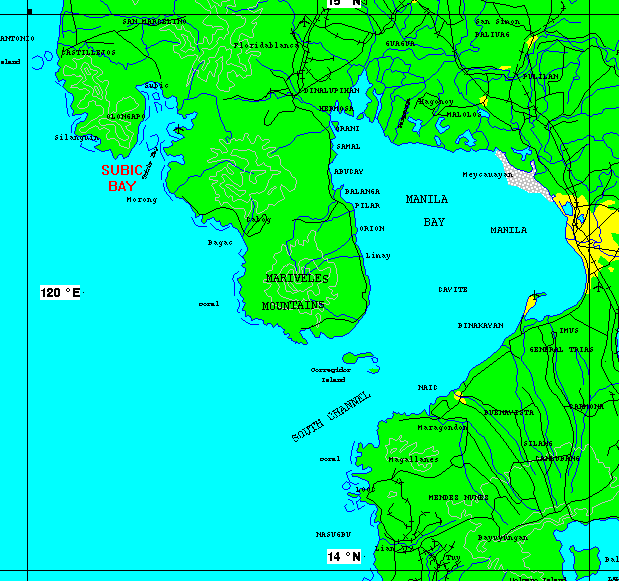



Subic Bay Naval Station
The 12-15 June 1991, eruption of Mount Pinatubo volcano, located 100 kilometers northwest of Manila in the Philippines, was the largest eruption in the past five decades and led to the largest recorded evacuation of people due to a volcanic threat. US forces left the Philippines after Mount Pinatubo erupted, forcing American service members and families to flee and smothering Subic Bay and Clark Air Base under tons of volcanic ash and debris. The cataclysm essentially ended the US military presence. US forces abandoned Clark Air Base and Subic Bay Naval Base after the Philippine government voted not to renew a basing agreement in 1992.
The U.S.-Philippine security relationship has evolved since the withdrawal of US military bases in 1991-92. The US is gradually establishing a post-bases relationship that is consistent with US activities elsewhere in the region -- exercises, ship visits, exchanges, and policy dialogues. Upon ratification by the Philippine Senate, the January 1998 Visiting Forces Agreement, which lays out the legal status of US defense personnel temporarily in the Philippines in connection with official duties, facilitated
expanded military cooperation. The new agreement reaffirms obligations established under a US-Philippine mutual defense treaty signed in 1951 that requires
the United States to help defend the Philippines should it be attacked. It provides legal protections for DoD personnel serving in the Philippines and their hosts. It requires US service members to respect Philippine laws and to abstain from activities inconsistent with the spirit of the agreement. The Philippine Senate's ratification of the Visiting Forces Agreement with the United States allowed US Navy ships to visit Manila.

Sources and Methods
http://www.fas.org/man/dod-101/fac/port/subic_bay.htm
Maintained by Robert Sherman
Originally created by John Pike
Updated Sunday, September 05, 1999 5:31:44 AM




